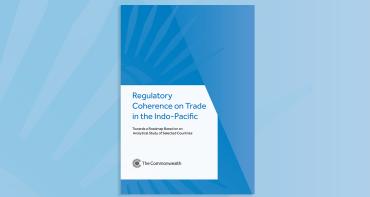Speaker: Commonwealth Deputy Secretary-General Mmasekgoa Masire-Mwamba
Your Majesty, Honourable Ministers, Distinguished Guests, Ladies and Gentlemen
It gives me great pleasure to welcome you to this historic building, Marlborough House, for the first substantive meeting of the UN High-Level Panel on the Post-2015 Development Agenda.
About two years ago, the Commonwealth engaged in a highly publicised, holistic review to reinvigorate and re-assess the relevance of this organisation. Amongst the many questions that the process helped address let me just flag a few which may be particularly relevant in our context this morning.
First, the link between democratic values and development, emphasising the direct link between good governance, at both the national and local levels, and the bearing that good governance has on economic progress. In our experience, democratic freedoms and development processes are best served and mutually reinforcing when participatory and inclusive.
Secondly, the diversity of Commonwealth membership means that it can valuably serve as an important bridge between some of the world’s poorest and richest countries, and between the smallest and the most populous. Providing a voice and support to vulnerable states and small states that make up 30 of the 54 members of this voluntary association of nations. This ability to focus on vulnerability, resilience and growth challenges of small states resonates with larger societies within which with vulnerable communities may share some of the issues and concerns of these small states.
Lest we forget, the all important Commonwealth common heritage/tradition in public administration and focus on strong institutions. Fair and effective public administration at a national and local level that makes the state legitimate in the eyes of its citizens and is better able to deliver development objectives.
Against this background:
What opportunities for engagement/what possible role can the Commonwealth play as we look ahead post-2015?
The post-2015 process offers an important opportunity to establish and build intra-Commonwealth partnerships as envisaged by Commonwealth Heads of Government in 2009 when they called for a more equitable and sustainable future.
- Our convening power, follow-up commitment and established relations with development partners e.g. addressing some critical economic data gaps, including developing national data and indicator monitoring in small states.
- Cultivation of political concurrence through the facilitation of ministerial and stakeholder engagement e.g. the Commonwealth Development Framework for Education which will be availed through the ministerial working group.
- Ongoing publications and research: “THE BIG DIVIDE: Ten year report on small island developing states progress towards the Millennium Development Goals”. Bearing in mind, that interstate inequity remains a formidable issue to be addressed in formulating international strategies in promoting sustainable development. This study may well be instructive in highlighting lessons learned and considerations in possible promoting indigenous indicators in an unbalanced global environment.
In conclusion, the Secretary-General of the Commonwealth, Kamalesh Sharma, was keen that we use this opportunity to convey his personal support and encouragement to this process and emphasising that the Commonwealth stands ready to creatively explore ways in which we can practically support the process going forward, well beyond availing this magnificent building for your use. We will continue to seek opportunities to share Commonwealth views into the international discourse, and look forward to remaining closely engaged with this esteemed panel.
Once again, I thank you and wish you every success in your deliberations.



